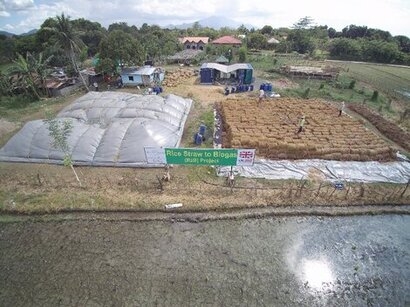
The easy-to-use tool, called the Bioenergy Mass-Energy Balance Model, allows the user to experiment virtually with different biomass materials in several industrial processes including cement production, tea production and food processing to understand the potential implementation.
Developed with the focus on bioenergy development in the Global South, users can simply and easily calculate how much heat or electricity they can produce from the biomass.
The EBRI team based at Aston University who developed the tool will be launching the model and summarising their methodologies at an online event on Thursday 1st July.
Dr Katie Chong, lecturer in chemical engineering, who led the development team said they were looking forward to the launch.
“This tool will be available to everyone for free and has been built in Excel to make it accessible for all” said Dr Chong. “We wanted to keep it as simple as possible and we really think it will make a difference, particularly in Sub-Saharan Africa”.
Mirjam Röder, associate professorial research fellow at EBRI, added that the launch event will be a chance for EBRI to introduce the Mass-Energy Balance Model, summarise the methodologies and give participants the opportunity to use the model and generate their own results in a guided walk-through during the workshop.
The tool was developed as part of a larger two-year research programme by the team at Aston University who are a core member of the consortium implementing the Bioenergy for Sustainable local energy services and Energy Access in Africa (BSEAA). Aston University partnered with NIRAS-LTS, E4Tech and AIGUASOL.
The project was funded by the UK Foreign, Commonwealth and Development Office (FCDO) as part of the Transforming Energy Access programme.
For additional information:
To sign up for the free event which runs from 9.30am until 11.30am tomorrow (Thursday 1 July), visit this link: https://www.eventbrite.co.uk/e/mass-energy-balance-model-demonstration-workshop-tickets-158891955115
For more details about the world-leading research taking place at EBRI, visit: https://www.aston.ac.uk/research/eps/ebri

